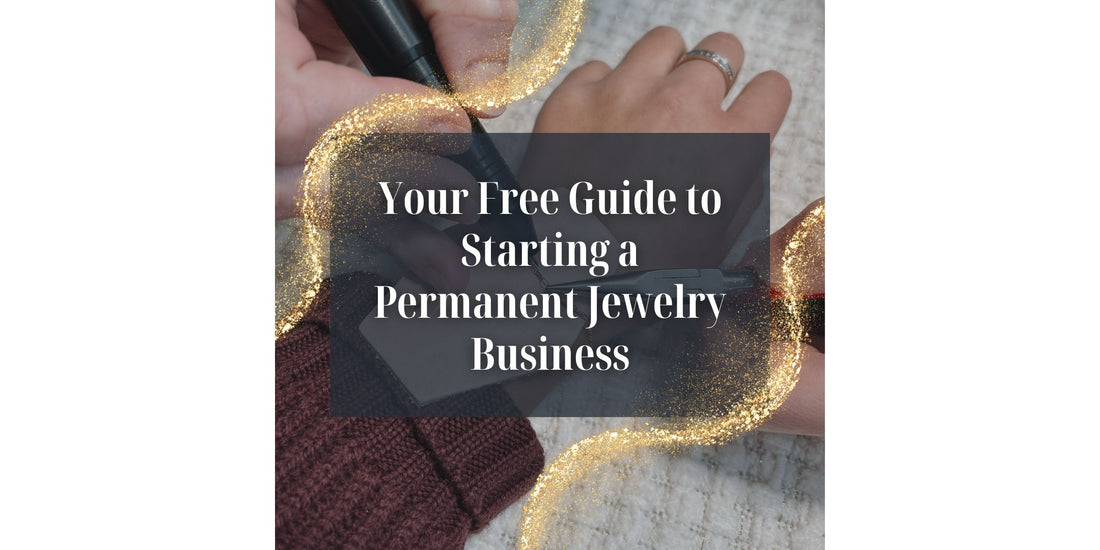
Your Free Guide to Starting a Permanent Jewelry Business
Have You Been Thinking About Starting a Permanent Jewelry Business?
If you’ve recently found yourself thinking about diving into the world of permanent jewelry … You're not alone! Permanent jewelry is rapidly gaining popularity, thanks to its unique appeal and the booming demand for personalized, custom-fit accessories. If you're ready to turn your passion for fashion into a thriving business, this guide will help you get started. We'll cover everything from purchasing a welder to shopping for supplies and the benefits of professional training. Let's get started!
Understanding Permanent Jewelry
Permanent jewelry refers to claspless, custom-fit chains that are welded together to create seamless pieces for wrists, ankles, fingers, or necks. Using a micro-welder like this one, these pieces are joined without piercing the skin, offering a painless and non-invasive experience. While the term "permanent" suggests durability, these pieces can be easily removed with a simple snip, making them a flexible and appealing choice for many customers.
Getting Started: Equipment and Supplies
Purchasing a Welder
Your journey into the permanent jewelry business begins with acquiring the right tools, and the most crucial tool is the welder. Here are two main routes you can take when starting your permanent jewelry business:
1. Welder-Only Purchase:
- Pros: Flexibility to choose other supplies separately, potential cost savings if you already have some equipment.
- Cons: Requires more research to ensure compatibility of different components, potentially more time-consuming, most people don't know what they need when getting started, and often over-spend or purchase unnecessary supplies.
When opting for a welder-only purchase, consider reputable brands like Sunstone welders, known for their precision and reliability in the permanent jewelry industry.
2. Complete Starter Kits:
- Pros: Convenient, all-in-one solution with everything you need to get started, typically includes a welder, chains, jump rings, and other essential tools.
- Cons: May be more expensive upfront, less flexibility in choosing individual components.
forEVER Permanent Jewelry offers comprehensive starter kits that include everything from the micro-welder to a variety of high-quality chains, ensuring you have all the necessary tools to begin your business smoothly.
Shopping for Supplies
If you prefer to assemble your kit independently, here are some essential supplies to consider:
- Chains: Choose from gold, silver, or gold-filled options. Variety is key to catering to different customer preferences.
- Clasps and Findings: Even though the jewelry is "permanent," having a few clasps on hand for adjustments or special requests is wise.
- Tools: Micro-welders, pliers, cutters, and measuring tools are essential for precision and quality craftsmanship.
- Safety Equipment: Protective eyewear and gloves to ensure safety while working with welding equipment.
Choosing a Supplier
When selecting suppliers for your permanent jewelry business, consider the following factors:
1. Variety and Customization: Look for suppliers offering a range of kits and supplies that can be customized to meet your specific business needs.
2. Quality: Ensure the materials, especially chains and findings, are of high quality. Inferior materials can tarnish quickly and affect customer satisfaction.
3. Reputation: Check reviews and testimonials from other jewelers. A supplier with a solid reputation is more likely to provide reliable products and services.
4. Support: Opt for suppliers who offer support and guidance, whether through detailed product descriptions, customer service, or additional resources like training.
The Value of Training
While it's possible to start a permanent jewelry business without formal training, investing in a professional training course can provide significant benefits. Here are five reasons why training is beneficial:
1. Hands-On Experience:
- Training courses offer practical, hands-on experience with the tools and materials. This ensures you are comfortable and proficient in using the equipment before serving customers. While hands-on training can be limited depending on your location, some programs offer training online or a hybrid training method.
2. Expert Guidance:
- Learn from experienced professionals who can provide valuable tips and tricks to avoid common pitfalls. Their expertise can help you refine your technique and produce high-quality pieces.
3. Customer Confidence:
- Completing a training course that provides a Certificate of Completion that you can display in your workspace can enhance your credibility and reassure customers that you have the skills and knowledge to create beautiful, durable pieces.
4. Business Insights:
- Training often includes business advice, from marketing strategies to customer service tips. This holistic approach can help you build and grow a successful business.
5. Safety and Efficiency:
- Proper training ensures you understand the safety protocols when using welding equipment, minimizing the risk of accidents. An added bonus to this is that most insurance companies will ask if you have taken training, and some may be able to offer you more competitive rates. Additionally, it can teach you efficient workflows to maximize productivity.
Choosing the Right Trainer
Selecting the right trainer is crucial to getting the most out of your training. Here are some tips to help you make an informed decision:
1. Reviews and Testimonials:
- Look for trainers with positive reviews and testimonials from past students. This feedback can provide insights into the quality of the training.
2. Teaching Experience:
- Consider trainers with substantial teaching experience. Experienced trainers are more likely to have refined their teaching methods to effectively convey complex concepts.
3. Course Content:
- Review the course outline to ensure it covers all the essential topics, from equipment use and safety to business management and marketing.
4. Active Practitioners:
- Ideally, choose a trainer who actively runs their own permanent jewelry business. Their real-world experience will provide practical, up-to-date advice.
5. Personal Connection:
- A good rapport with your trainer can enhance your learning experience. Look for someone who communicates clearly and is willing to answer your questions.
Starting Your Permanent Jewelry Business: Final Tips
- Market Research: Understand your target audience and their preferences. This will help you tailor your product offerings and marketing strategies effectively.
- Pricing Strategy: Set competitive prices that reflect the quality of your work and cover your costs. Consider offering introductory discounts or packages to attract new customers.
- Online Presence: Build a strong online presence through social media and a professional website. Showcasing your work online can attract a wider audience and drive sales.
- Customer Service: Provide excellent customer service to build a loyal customer base. Happy customers are more likely to recommend your business to others.
Conclusion
Starting a permanent jewelry business can be an exciting and rewarding venture. Whether you choose to purchase a welder and supplies separately or opt for a comprehensive starter kit, ensure you prioritize quality and reliability in your choices. Investing in professional training can provide valuable skills and knowledge, setting you up for success in this growing industry. By carefully selecting suppliers and trainers, and focusing on delivering exceptional customer service, you'll be well on your way to building a thriving permanent jewelry business.
For more information on starter kits and training courses, visit forEVER Permanent Jewelry. Happy welding!
